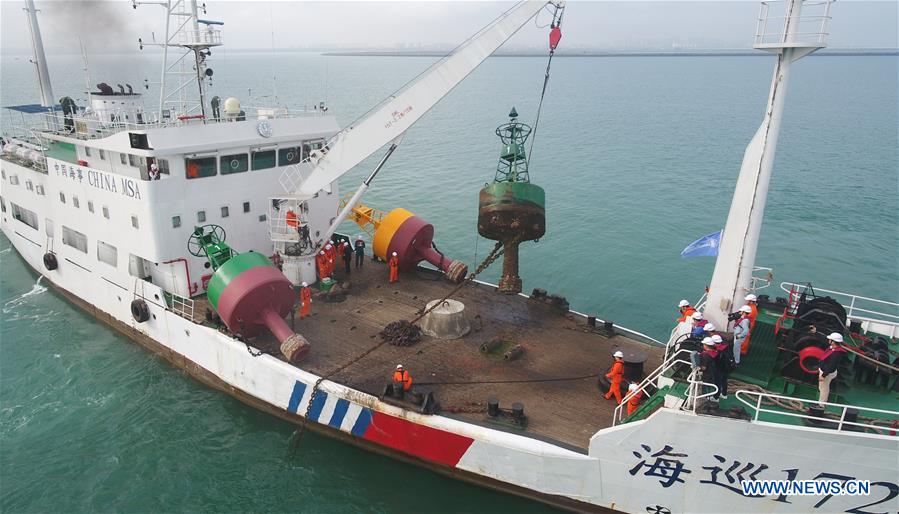China's 10-year fishing ban in the Yangtze River will affect 280,000 fishermen, many of whom are happy to come ashore to protect biodiversity in the country's longest river.
by Xinhua writers Liu Fangqiang and Wang Haiyue
HEFEI, Jan. 9 -- Zhu Changhong, an ex-fisherman on the Yangtze River, skillfully scooped up a plastic bottle with a net from his boat while patrolling the water on a cold afternoon in early January.
"There is not much trash to clean in winter since the water is low," said the 54-year-old.
He bid farewell to his fishing boat and gear for good as a 58-km waterway where he used to fish completely outlawed fishing for the protection of finless porpoises at the beginning of 2019.

Ex-fisherman Zhu Changhong and his wife clean floating trash as they patrol along the Yangtze River in east China's Anhui Province, on Jan. 7, 2020. TO GO WITH XINHUA HEADLINES OF JAN. 9, 2020. (Xinhua/Qu Yan)
One year later, China started a 10-year fishing ban on 332 key areas of the Yangtze River to protect biodiversity in the country's longest river, among which is the river section where Zhu lives, Datong Township of Tongling City, eastern China's Anhui Province.
The fishing moratorium is regarded as a key move in fighting depleting biological resources and degrading biodiversity in the Yangtze River, which has long been suffering from human activities such as overfishing and pollution, said Vice Minister of Agriculture and Rural Affairs Yu Kangzhen.
The 10-year ban is estimated to affect more than 110,000 fishing boats and nearly 280,000 fishermen in 10 provincial-level regions along the river. The ministry has promised to provide social security services, financial support and vocational training for fishermen who have to find a new way of earning a living.
Unlike other fishermen who have found jobs in factories or become security guards, Zhu and his wife continue to live by the river, but in a different way.
With the help of the local government, they joined a patrol team to clean floating trash and report sightings of finless porpoises, a job that earns them 5,000 yuan a month (about 720 U.S. dollars).













